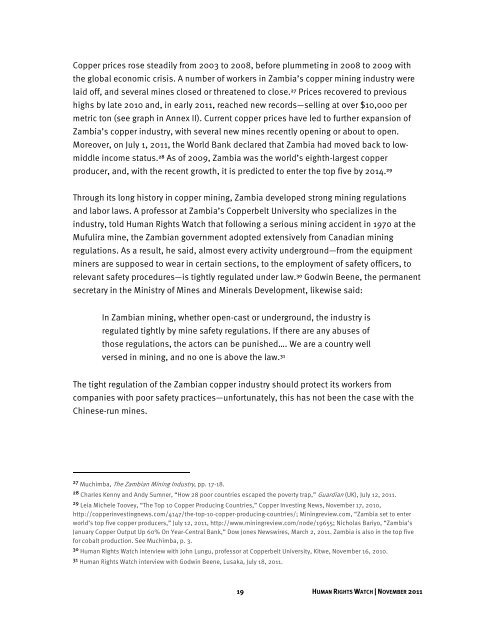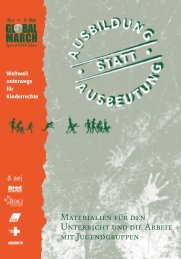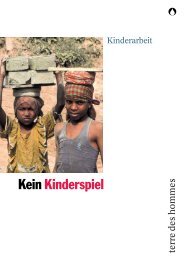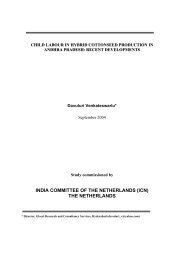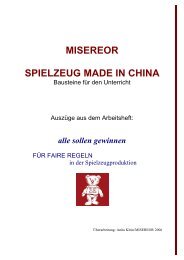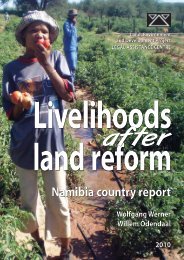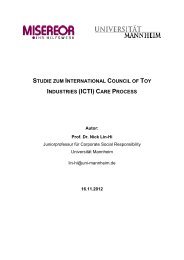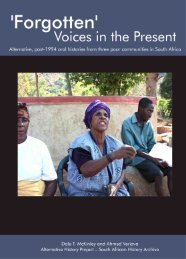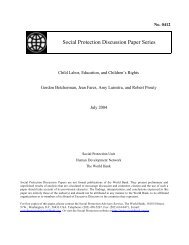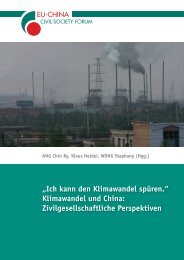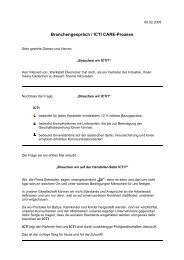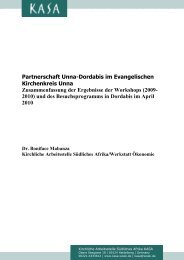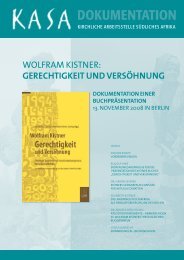“You'll Be Fired if You Refuse†- Human Rights Watch
“You'll Be Fired if You Refuse†- Human Rights Watch
“You'll Be Fired if You Refuse†- Human Rights Watch
Create successful ePaper yourself
Turn your PDF publications into a flip-book with our unique Google optimized e-Paper software.
Copper prices rose steadily from 2003 to 2008, before plummeting in 2008 to 2009 with<br />
the global economic crisis. A number of workers in Zambia’s copper mining industry were<br />
laid off, and several mines closed or threatened to close. 27 Prices recovered to previous<br />
highs by late 2010 and, in early 2011, reached new records—selling at over $10,000 per<br />
metric ton (see graph in Annex II). Current copper prices have led to further expansion of<br />
Zambia’s copper industry, with several new mines recently opening or about to open.<br />
Moreover, on July 1, 2011, the World Bank declared that Zambia had moved back to lowmiddle<br />
income status. 28 As of 2009, Zambia was the world’s eighth-largest copper<br />
producer, and, with the recent growth, it is predicted to enter the top five by 2014. 29<br />
Through its long history in copper mining, Zambia developed strong mining regulations<br />
and labor laws. A professor at Zambia’s Copperbelt University who specializes in the<br />
industry, told <strong>Human</strong> <strong>Rights</strong> <strong>Watch</strong> that following a serious mining accident in 1970 at the<br />
Mufulira mine, the Zambian government adopted extensively from Canadian mining<br />
regulations. As a result, he said, almost every activity underground—from the equipment<br />
miners are supposed to wear in certain sections, to the employment of safety officers, to<br />
relevant safety procedures—is tightly regulated under law. 30 Godwin <strong>Be</strong>ene, the permanent<br />
secretary in the Ministry of Mines and Minerals Development, likewise said:<br />
In Zambian mining, whether open-cast or underground, the industry is<br />
regulated tightly by mine safety regulations. If there are any abuses of<br />
those regulations, the actors can be punished…. We are a country well<br />
versed in mining, and no one is above the law. 31<br />
The tight regulation of the Zambian copper industry should protect its workers from<br />
companies with poor safety practices—unfortunately, this has not been the case with the<br />
Chinese-run mines.<br />
27 Muchimba, The Zambian Mining Industry, pp. 17-18.<br />
28 Charles Kenny and Andy Sumner, “How 28 poor countries escaped the poverty trap,” Guardian (UK), July 12, 2011.<br />
29 Leia Michele Toovey, “The Top 10 Copper Producing Countries,” Copper Investing News, November 17, 2010,<br />
http://copperinvestingnews.com/4147/the-top-10-copper-producing-countries/; Miningreview.com, “Zambia set to enter<br />
world’s top five copper producers,” July 12, 2011, http://www.miningreview.com/node/19655; Nicholas Bariyo, “Zambia’s<br />
January Copper Output Up 60% On Year-Central Bank,” Dow Jones Newswires, March 2, 2011. Zambia is also in the top five<br />
for cobalt production. See Muchimba, p. 3.<br />
30 <strong>Human</strong> <strong>Rights</strong> <strong>Watch</strong> interview with John Lungu, professor at Copperbelt University, Kitwe, November 16, 2010.<br />
31 <strong>Human</strong> <strong>Rights</strong> <strong>Watch</strong> interview with Godwin <strong>Be</strong>ene, Lusaka, July 18, 2011.<br />
19 HUMAN RIGHTS WATCH | NOVEMBER 2011


